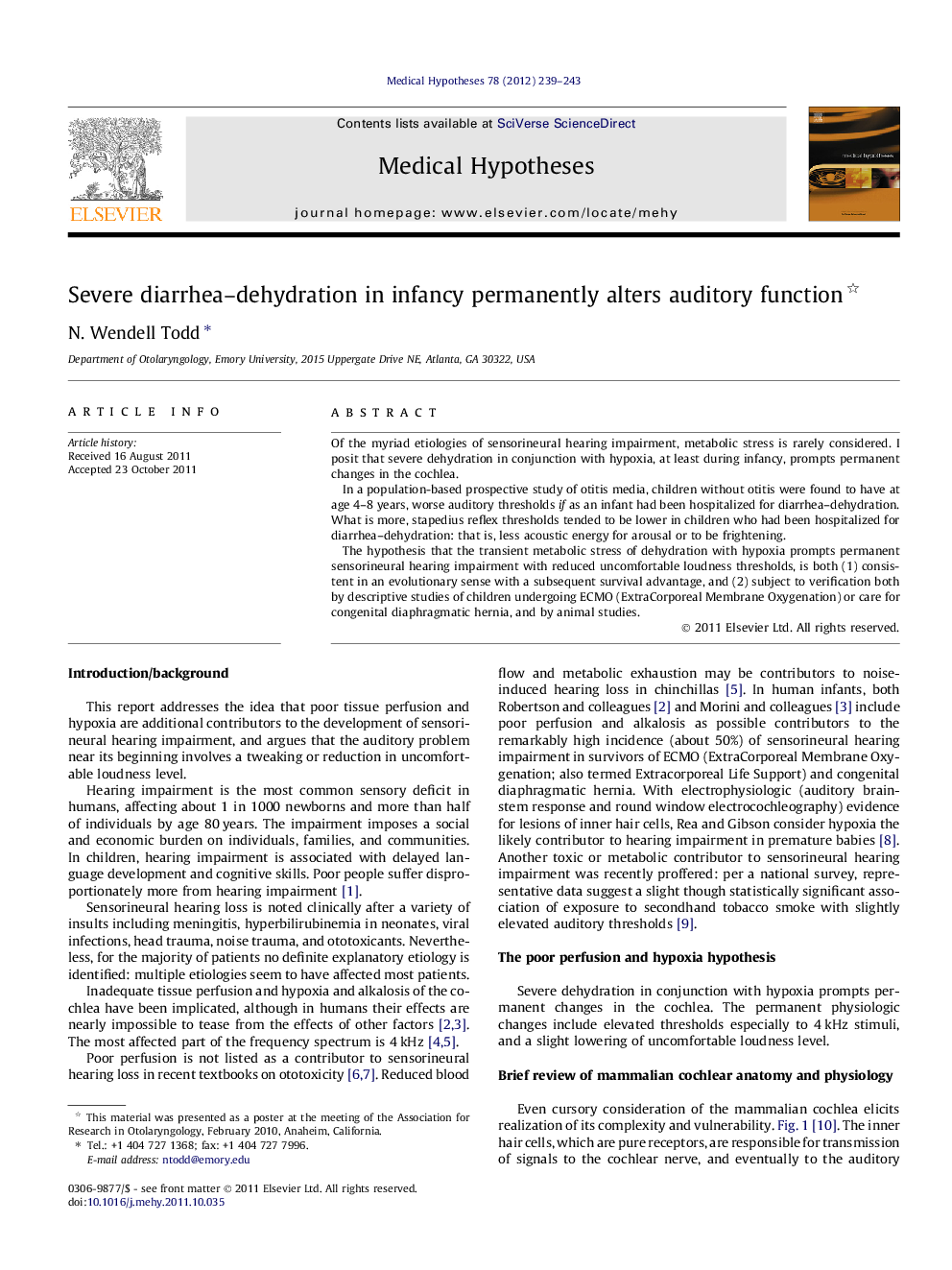| Article ID | Journal | Published Year | Pages | File Type |
|---|---|---|---|---|
| 2489538 | Medical Hypotheses | 2012 | 5 Pages |
Of the myriad etiologies of sensorineural hearing impairment, metabolic stress is rarely considered. I posit that severe dehydration in conjunction with hypoxia, at least during infancy, prompts permanent changes in the cochlea.In a population-based prospective study of otitis media, children without otitis were found to have at age 4–8 years, worse auditory thresholds if as an infant had been hospitalized for diarrhea–dehydration. What is more, stapedius reflex thresholds tended to be lower in children who had been hospitalized for diarrhea–dehydration: that is, less acoustic energy for arousal or to be frightening.The hypothesis that the transient metabolic stress of dehydration with hypoxia prompts permanent sensorineural hearing impairment with reduced uncomfortable loudness thresholds, is both (1) consistent in an evolutionary sense with a subsequent survival advantage, and (2) subject to verification both by descriptive studies of children undergoing ECMO (ExtraCorporeal Membrane Oxygenation) or care for congenital diaphragmatic hernia, and by animal studies.
